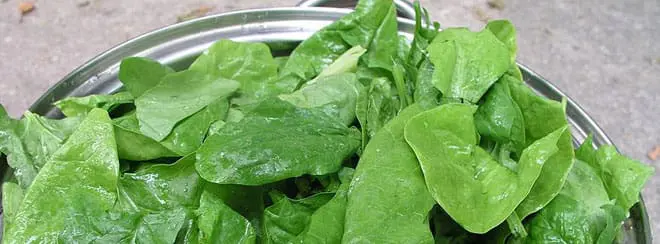Which foods will help improve your vision?
Can your diet really improve or help maintain your eyesight? From your granny telling you that carrots will help you to see in the dark, to scientists telling us that blueberries are superfoods, there are all sorts of claims out there about the potential benefits of vitamins and minerals on our eye health.

Yet for those of us with more severe eye conditions, can a few more of your five a day really make a difference? Whether you’d simply like to maintain your 20/20 (6/6) vision for a few more years, or have alaser eye surgery or lens replacement surgery booked in, we’re here to highlight a few positives and dispel a few of those lingering myths about foods which claim to give your vision a boost.
The common sense disclaimer
Before we get started, it’s important to note that no matter how good for your food item may be, it’s not going to have an impact on serious eye conditions. If you’re suffering from ocular discomfort or problems with your vision, it’s absolutely critical that you get yourself checked out by a specialist. If you need something like a cataract operation or wish to be considered for laser vision correction, for instance, no amount of vitamin A is going to help if you haven’t got experts in eye care fully involved.
In reality, eating well, maintaining a healthy diet, leading a healthy lifestyle and enjoying foods with vision-boosting qualities may help healthy eyes to stay healthy for longer. Yet all of the carrots in the world will not prevent an existing eye condition from worsening. With this in mind, let’s take a look at a few beneficial foods for those of you keen to keep your eyes as healthy as possible…
Eat your greens
There’s a very special ingredient in your green vegetables which is thought to be especially good for maintaining eye health. Known as lutein, this carotenoid is found in your macula (a small and vital part of your retina). Its purpose is thought to be to protect your eyes from the high-energy photons that occur in blue light – and to help reduce oxidative stress on your retina.
The more luteins you eat, the better protected your eyes should be from these type of harm. Luteins are also thought to reduce your chances of developing macular degeneration in later life. Time to stock up on the spinach, broccoli, kale, chard and courgettes! Lutein is also found in egg yolks and animal fats and responsible for the color of the egg yolk!
Spice up your life
Zeaxanthin is another carotenoid which has a direct role to play when it comes to the retina. Preliminary observations documented in the Age-Related Eye Disease Study have suggested that a higher intake of this carotenoid could reduce your chances of age related eye diseases. Zeaxanthin provides the coloring of chilli peppers. Time to start adding more paprika and saffron to your culinary creations! Eggs, goji berries and, you guessed it, spinach are all good natural sources of this substance.
Go orange
You were probably told from an early age that carrots will help you see in the dark. This old wives’ tale isn’t strictly true, but there are plenty of eye health benefits associated with one of the humble carrots greatest assets: vitamin A. That includes a crucial role in the creation of a light-absorbing molecule in the retina called rhodopsin. Careful though, carrots contain very high amounts of fructose and can lead to weight gain as well as turn you orange !
Our bodies need plenty of vitamin A to produce rhodopsin. It’s this molecule which helps us to see in colour and in low-light environments. To make sure you’re getting enough, up your intake of orange fruit and veg: pumpkins, cantaloupes, apricots, papaya and mangoes are all great sources. Meanwhile, if you have a carnivorous streak, liver is chock-a-block with this essential vitamin.
As always good foods in moderation over a period of time can tip the balance in your favour when it comes to your eyes. Making that lifestyle choice is important, but don’t expect miracles. These nutrients are beneficial to prevent chronic eye problems long term.
Author Information
Authored by Sheraz Daya MD FACP FACS FRCS(Ed) FRCOphth, Consultant Ophthalmic Surgeon & Medical Director, June 2019.
Net review due June 2026